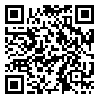Volume 7, Issue 2 (June 2025)
IEEPJ 2025, 7(2): 0-0 |
Back to browse issues page
Download citation:
BibTeX | RIS | EndNote | Medlars | ProCite | Reference Manager | RefWorks
Send citation to:



BibTeX | RIS | EndNote | Medlars | ProCite | Reference Manager | RefWorks
Send citation to:
Fashakh Al Qarghuli W N, Saadatmand Z, Qasim Khafeef E, Baratali M. (2025). Components of the Media Literacy Curriculum in the Elementary Education Period of Iraq's Education System. IEEPJ. 7(2), doi:10.22034/ieepj.2025.7.2.106
URL: http://ieepj.hormozgan.ac.ir/article-1-1055-en.html
URL: http://ieepj.hormozgan.ac.ir/article-1-1055-en.html
1- PhD Student, Department of Curriculum planning, Isf.C., Islamic Azad University, Isfahan, Iran
2- Associate Professor, Department of Educational Sciences, Isf.C., Islamic Azad University, Isfahan, Iran ,saadatmand@iau.ac.ir
3- Associate Professor, Department of Educational Psychology, Faculty of Humanities, Dhi Qar University
4- Assistant Professor, Department of Educational Sciences, Isf.C., Islamic Azad University, Isfahan, Iran
2- Associate Professor, Department of Educational Sciences, Isf.C., Islamic Azad University, Isfahan, Iran ,
3- Associate Professor, Department of Educational Psychology, Faculty of Humanities, Dhi Qar University
4- Assistant Professor, Department of Educational Sciences, Isf.C., Islamic Azad University, Isfahan, Iran
Abstract: (951 Views)
Objective: The aim of the present study was to identify the components of the media literacy curriculum in the elementary education period of Iraq's education system.
Methods: The research method employed was synthesis research based on an analogy model and grounded in Klein's framework. The research scope in the synthesis phase, aimed at identifying the pattern's components, included reference texts on media literacy and media literacy education from the years 2010 to 2025. In the synthesis research section, 47 sources were purposefully examined. The data collection method for conducting the synthesis research was library-based, and the research tool in the synthesis phase was note-taking. Data analysis was performed using the synthesis research method.
Results: The results indicated that the goals of the media literacy curriculum in the elementary period, at the general level, involve achieving media culture, while the detailed goals include empowering elementary school students (encompassing cognitive strengthening through increasing media awareness and reforming media attitudes, enhancing analysis and moderating emotions, strengthening social skills, and integrating acquired capabilities) and empowering elementary school teachers (including strengthening teachers' media literacy—encompassing general media literacy, specialized media literacy, and ethical media literacy—training in creating new media, enhancing teachers' professional ethics, and improving teacher education).
Conclusions: The overall conclusion demonstrated that media literacy, as one of the vital skills in the information technology era, plays a significant role in empowering elementary school students to understand and analyze media messages.
Methods: The research method employed was synthesis research based on an analogy model and grounded in Klein's framework. The research scope in the synthesis phase, aimed at identifying the pattern's components, included reference texts on media literacy and media literacy education from the years 2010 to 2025. In the synthesis research section, 47 sources were purposefully examined. The data collection method for conducting the synthesis research was library-based, and the research tool in the synthesis phase was note-taking. Data analysis was performed using the synthesis research method.
Results: The results indicated that the goals of the media literacy curriculum in the elementary period, at the general level, involve achieving media culture, while the detailed goals include empowering elementary school students (encompassing cognitive strengthening through increasing media awareness and reforming media attitudes, enhancing analysis and moderating emotions, strengthening social skills, and integrating acquired capabilities) and empowering elementary school teachers (including strengthening teachers' media literacy—encompassing general media literacy, specialized media literacy, and ethical media literacy—training in creating new media, enhancing teachers' professional ethics, and improving teacher education).
Conclusions: The overall conclusion demonstrated that media literacy, as one of the vital skills in the information technology era, plays a significant role in empowering elementary school students to understand and analyze media messages.
Type of Study: Original |
Subject:
Educational Psychology
Received: 2025/03/26 | Accepted: 2025/05/5 | Published: 2025/06/1
Received: 2025/03/26 | Accepted: 2025/05/5 | Published: 2025/06/1
Send email to the article author
| Rights and permissions | |
 |
This work is licensed under a Creative Commons Attribution-NonCommercial 4.0 International License. |







